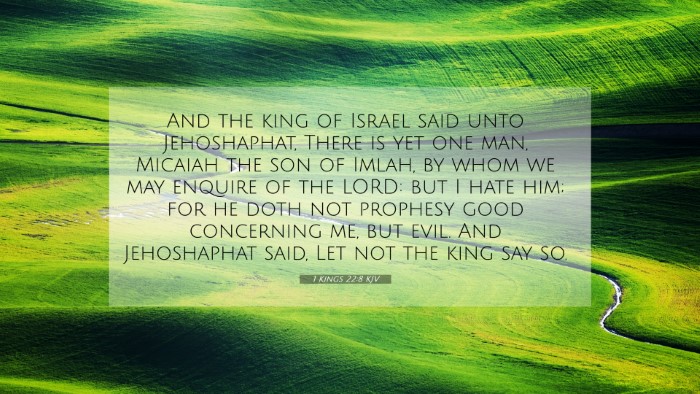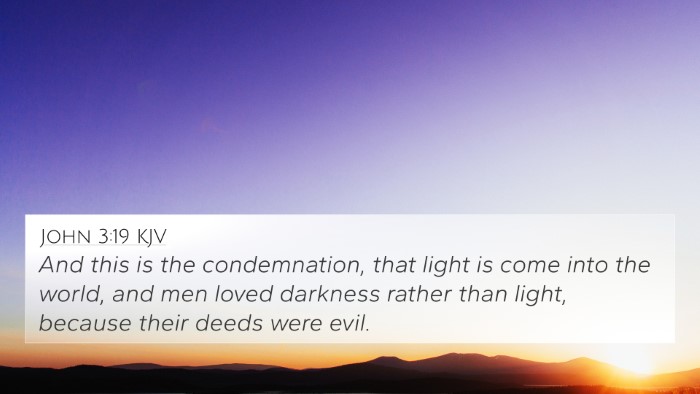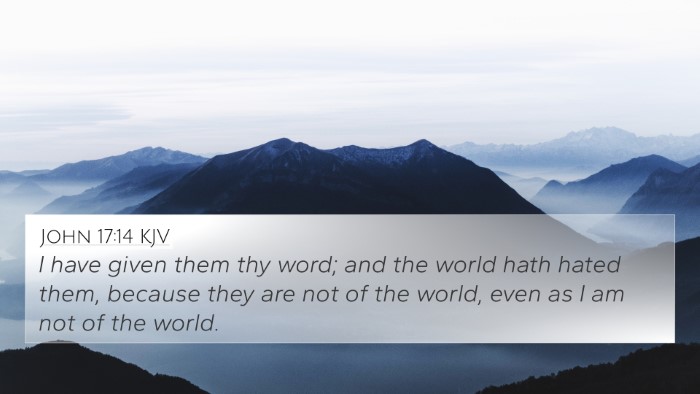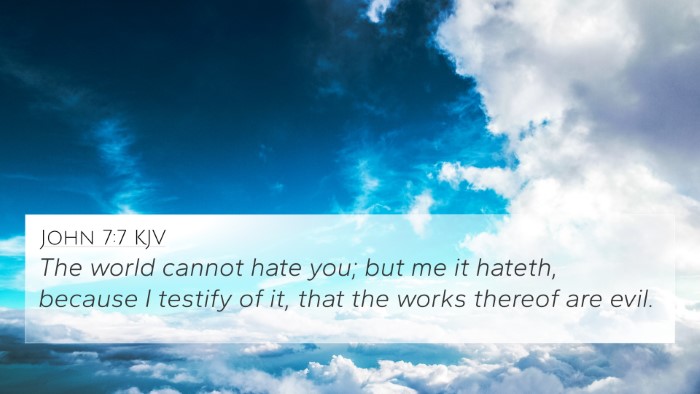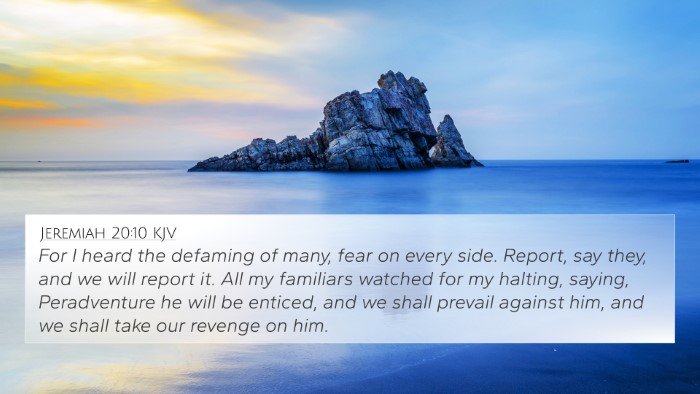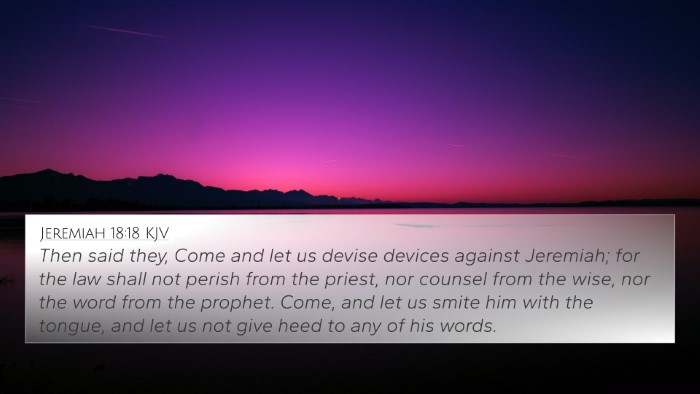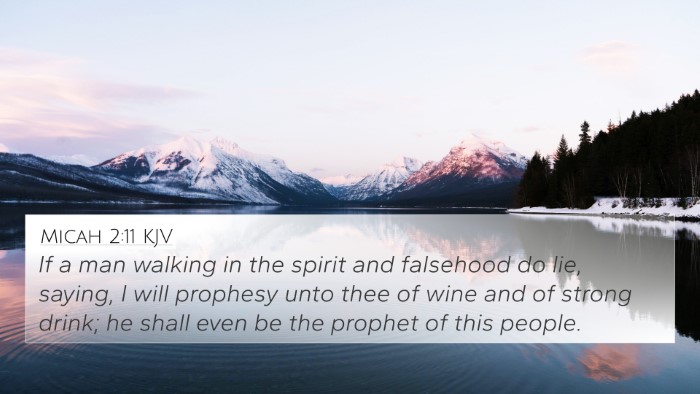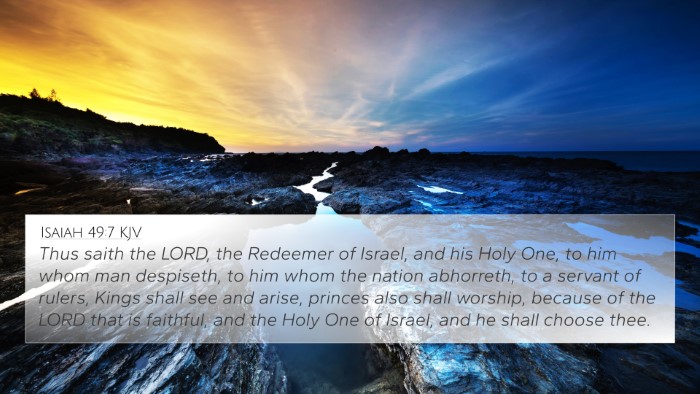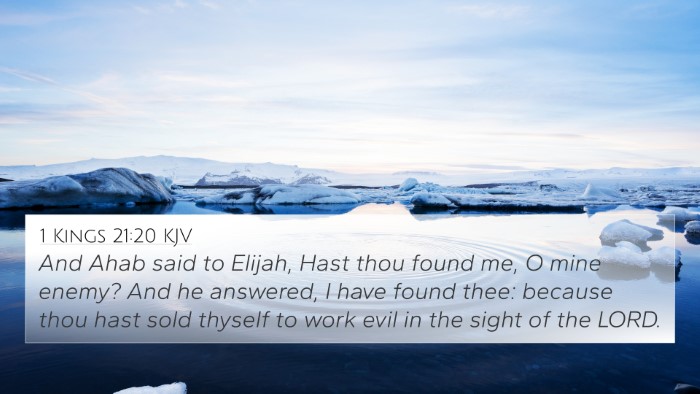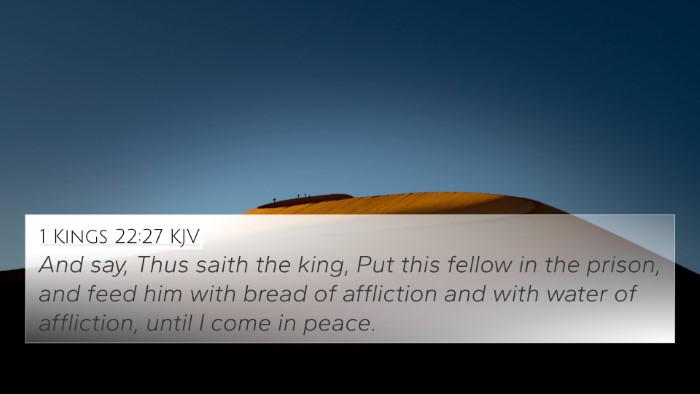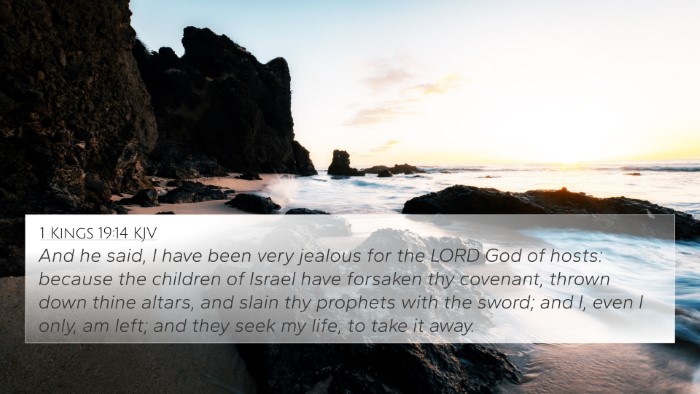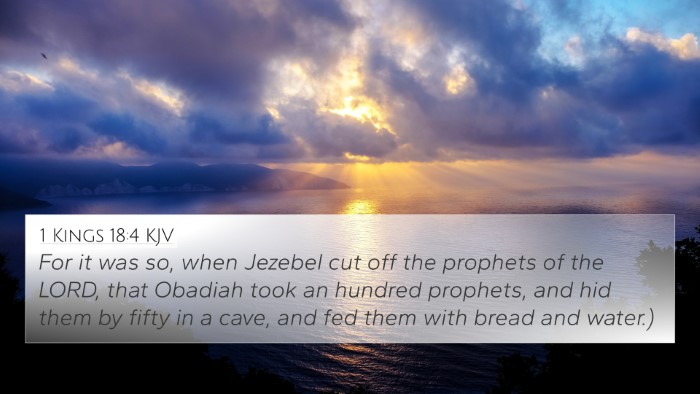Understanding 1 Kings 22:8
In 1 Kings 22:8, King Jehoshaphat of Judah expresses a desire to hear a prophetic word from the Lord about the impending battle against Ramoth-Gilead. The verse reads:
"And the king of Israel said unto Jehoshaphat, There is yet one man, Micaiah the son of Imlah, by whom we may inquire of the Lord: but I hate him; for he doth not prophesy good concerning me, but evil."
This verse highlights the tension in seeking divine guidance, particularly when the message may not align with one's desires. In studying this verse, we can draw upon insights from several public domain commentaries, including those by Matthew Henry, Albert Barnes, and Adam Clarke.
Verse Context and Significance
The backdrop of this passage is vital. King Ahab, the king of Israel, seeks to execute a military strategy against Aram. Jehoshaphat, his ally from Judah, insists that they consult a prophet of the Lord, which Ahab reluctantly agrees to. Micaiah, renowned for speaking the truth, becomes focal in this narrative.
Thematic Connections
Key themes include:
- Prophetic Truth vs. Political Favor: Ahab's dislike for Micaiah reveals the sometimes uncomfortable nature of God's message.
- Divine Guidance: The importance of consulting God in decisions, especially those of great consequence.
- Accountability of Leaders: The responsibility of kings to lead righteously, often at the expense of personal comfort.
Cross-Referencing Related Bible Verses
To facilitate a comprehensive understanding of this passage, we can explore several Bible verse cross-references:
- 1 Kings 18:17-18: Ahab’s previous confrontation with Elijah outlines his antagonism towards true prophets.
- 2 Chronicles 18:1-7: A parallel account that offers additional insights into the discussion about consulting a prophet.
- Jeremiah 23:16-17: Warns against prophets who speak smooth things, emphasizing the need for genuine prophetic voices.
- Proverbs 29:12: Highlights the danger of rulers leaning towards favor and ignoring the truth.
- Luke 6:26: Jesus warns of the peril of being spoken well of in times of challenge, drawing a parallel to Ahab's feelings towards Micaiah.
- Matthew 5:10-12: Connection to the blessings for those who are persecuted for righteousness' sake, as seen with Micaiah.
- Ezekiel 2:7: Emphasizes the duty of a prophet to speak God’s word faithfully, despite public opinion.
Commentary Insights
Matthew Henry notes that Ahab's disdain for Micaiah reflects the often-rejected voice of truth, particularly in leadership. He emphasizes the danger of seeking only those who affirm our own views instead of challenging us to recognize God's will.
Albert Barnes points to Ahab's hypocrisy, showcasing that his aversion to Micaiah stems from Micaiah’s accurate portrayal of Ahab’s actions. Barnes highlights that true prophets often face opposition and disdain when their messages are uncomfortable.
Adam Clarke discusses the nature of prophetic ministry, indicating that Micaiah represents the voice of the Lord, often at odds with the expectations of those in power. Clarke encourages believers to value truth over personal comfort when discerning divine messages.
Applications for Today
The essence of 1 Kings 22:8 resonates with modern readers as we navigate our own decisions. The need for honest counsel, even when it is inconvenient or unwelcome, is crucial. Here are some applications:
- Seek Truth: We should prioritize seeking the truth in our lives, even when it may lead to uncomfortable revelations.
- Value Prophetic Voices: Listen to those who might speak difficult truths, as they often align more with God’s will than appeasement.
- Reflect on Authority: Individuals in leadership must consider the long-lasting consequences of decisions made in favor of personal comfort over righteousness.
Further Study and Resources
For those interested in diving deeper into the study of 1 Kings 22:8, various tools for Bible cross-referencing can be utilized:
- Bible concordance to identify similar themes.
- Bible cross-reference guide to locate interconnected scriptures.
- Cross-reference Bible study materials that aid in discovering biblical parallels.
- Comprehensive Bible reference resources, including online databases.
- Bible chain references for thematic exploration.
- Cross-referencing Bible study methods to enhance understanding.
Conclusion
1 Kings 22:8 serves as a poignant reminder of the significance of seeking out genuine prophetic guidance and recognizing the weight of truth in our decision-making processes. By connecting this verse with others throughout the Bible, we can build a profound understanding of God's message and its application to our lives today.


